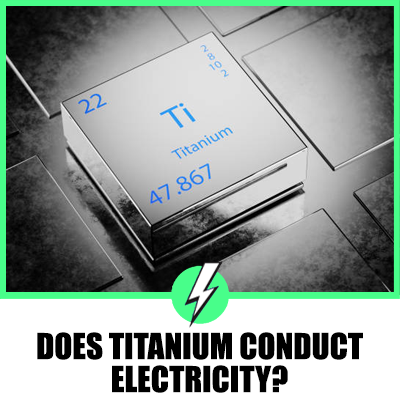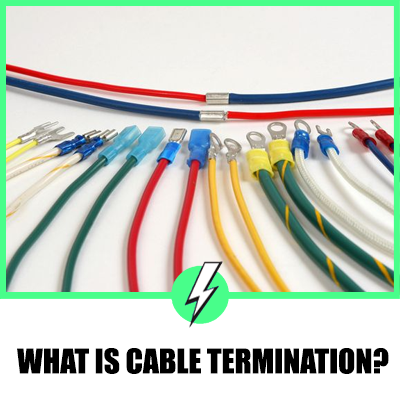Does Titanium Conduct Electricity? A Comprehensive Analysis
Titanium, a lustrous transition metal with an atomic number of 22, is the ninth most abundant metal on Earth’s crust.
Despite its abundance and wide usage in various industries, many people wonder about its electrical properties.
This article delves into the question: does titanium conduct electricity?

Contents
Is Titanium a Good Conductor of Electricity?
Titanium is a poor conductor of electricity.
The atom has its outermost orbital 4s2 completely filled, thereby outermost electrons are unavailable for carrying current.
Electrons in the down orbital 3d2 are available but are more under the hold of the nucleus, making it a poor conductor of electricity.
Compared to the electrical conductivity of copper, titanium exhibits only 3.1% of it.
This means that while titanium does conduct electricity, it would not be preferred like Aluminum, Copper, and silver where good conductivity is a prime factor.
Why is Titanium a Poor Conductor of Electricity?
The electrical conductivity of an element is related to the arrangement of electrons in its outer atomic orbitals.
In the case of Titanium, the outermost orbital, 4s, is completely filled and the next one down, 3d, is partially filled.
It means that electrons are available to share but not in the outermost orbital like Aluminium.
Electrons present in the inner orbitals are a bit more closely linked with the nucleus, so it is not easy for an atom to release them easily.
As a result, when compared to other metals like Aluminium, titanium is a poor conductor of electricity.
Is Titanium a Conductor of Heat or Electricity?
Titanium does have a high melting point, that is, more than 1,650 °C or 3,000 °F.
That makes it a refractory metal; it falls under a class of metals that are highly resistant to heat.
Even with that, it has low thermal and electrical conductivity as compared to other metals that get used in jewelry making.
What Metal Does Not Conduct Electricity?
While most metals have a tendency to lose electrons and thus conduct electricity, some metals like Manganese and Titanium show low electrical conductivity because of the absence of free electrons in valence orbitals.
Their electronic configurations have completely filled outermost orbitals and partially filled next one inner orbitals.
So, unlike good conductors like copper and silver, they do not release their valence shell electrons to carry electric flow.
Is Titanium an Electrical Insulator?
Titanium is not an insulator.
It is a metal and, by nature, metals are conductors of electricity.
However, when compared to other metals, titanium’s conductivity is quite low.
It’s important to note that when exposed to air, titanium forms a protective layer of Titanium Oxide, which protects it from corrosion.
This means that if Titanium has been exposed to the air, it might look like an insulator unless you scrape through the oxide layer.
Insights from Online Discussions
Online discussions reveal a general consensus that titanium, while not a good conductor of electricity compared to other metals, does conduct electricity.
It is also highlighted that titanium’s electrical conductivity is quite low compared to other metals, making it a suitable resistor as it hinders the amount of current that passes through the metal.
In conclusion, titanium, often regarded as the “metal of the future” due to its advantageous properties like high strength, low density, and corrosion resistance, is a poor conductor of electricity.
However, it is still much better at conducting electricity than an insulating material.
Titanium in Everyday Life
Titanium is used in a variety of everyday items and industrial applications due to its unique properties.
Its high strength-to-weight ratio makes it an ideal material for aerospace applications.
It’s also used in the medical field for surgical instruments and implants due to its biocompatibility.
Despite its poor electrical conductivity, titanium’s resistance to corrosion makes it useful in environments where other metals would fail.
The Future of Titanium
As we continue to explore the properties and potential applications of titanium, we may find new ways to utilize this versatile metal.
Its poor electrical conductivity, while a disadvantage in some applications, could be an advantage in others.
For example, its resistance to electrical current could make it a useful material in certain types of electrical insulation or protective equipment.
Final Thoughts
Understanding the properties of materials like titanium is crucial in many fields, from engineering to jewelry design.
While titanium may not be the best conductor of electricity, its unique properties make it a valuable material in many applications.
As we continue to learn more about this fascinating metal, who knows what future applications we might discover?
This article was written with both UK and US audiences in mind, and we hope it has provided a comprehensive answer to the question: does titanium conduct electricity?





